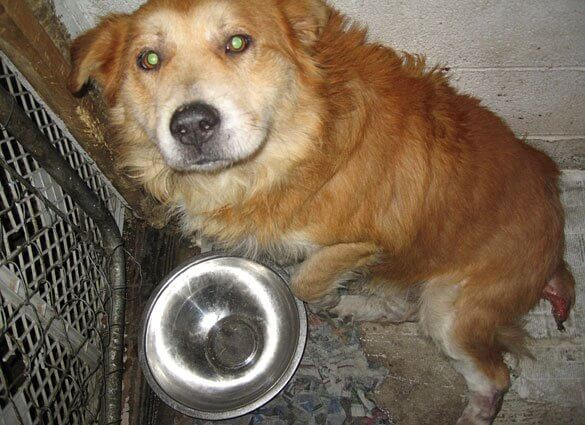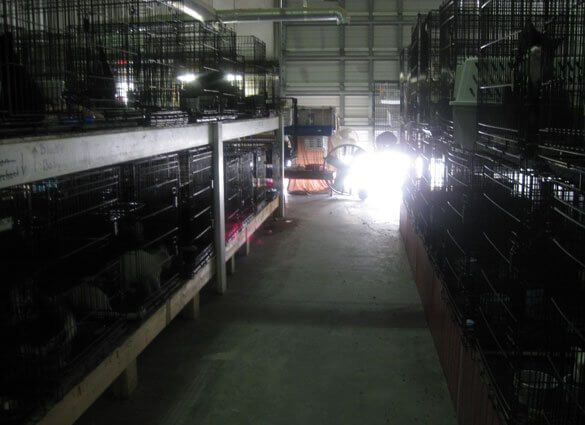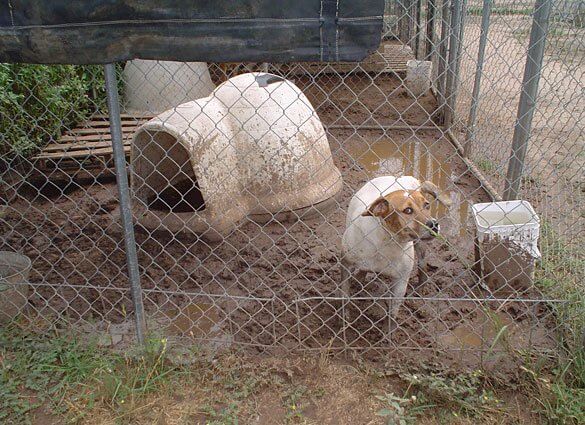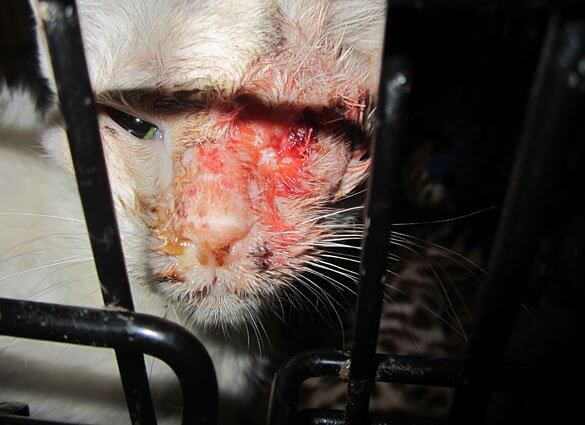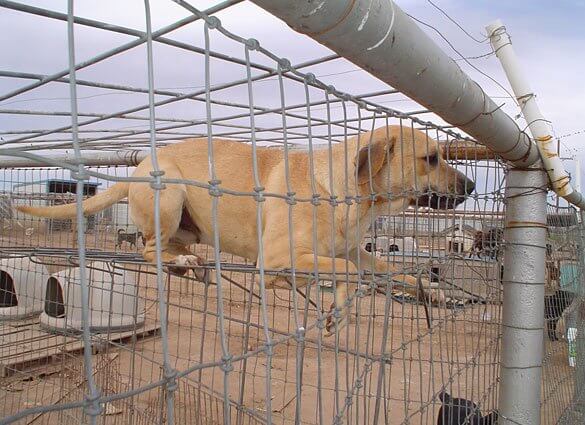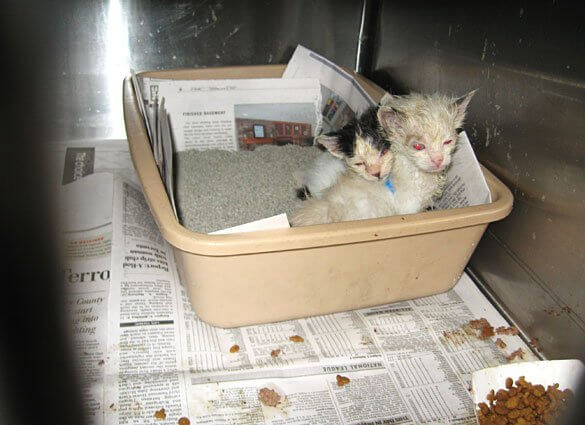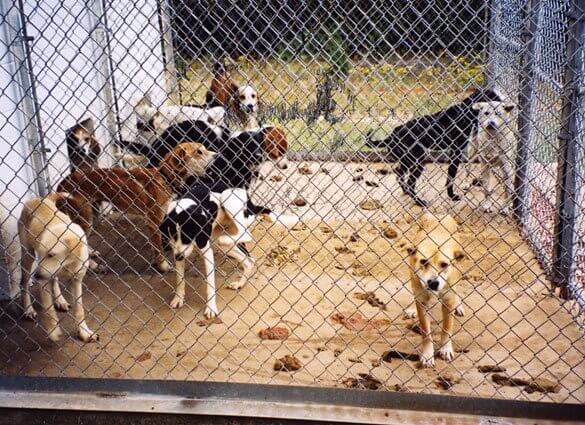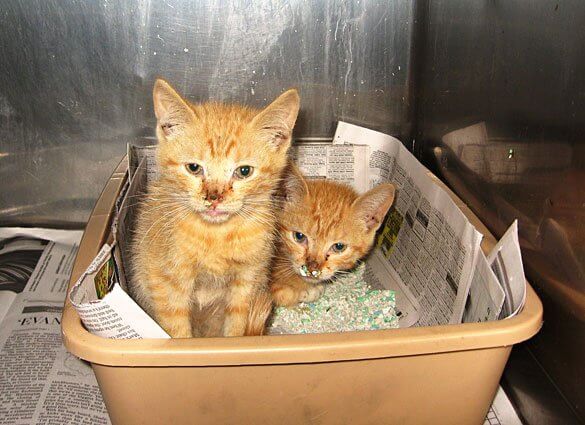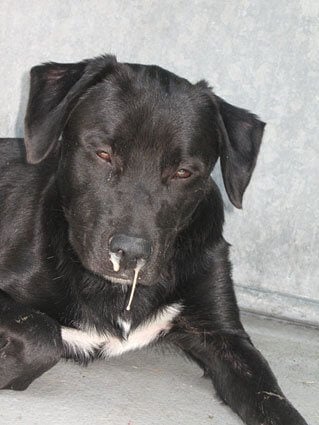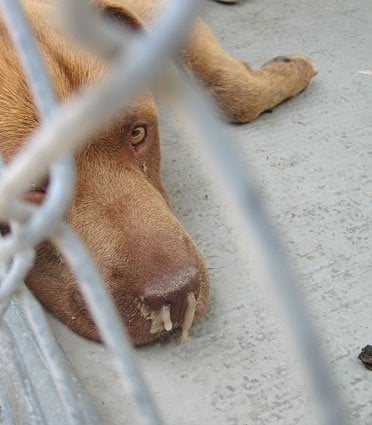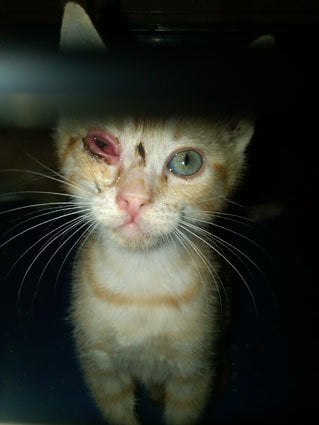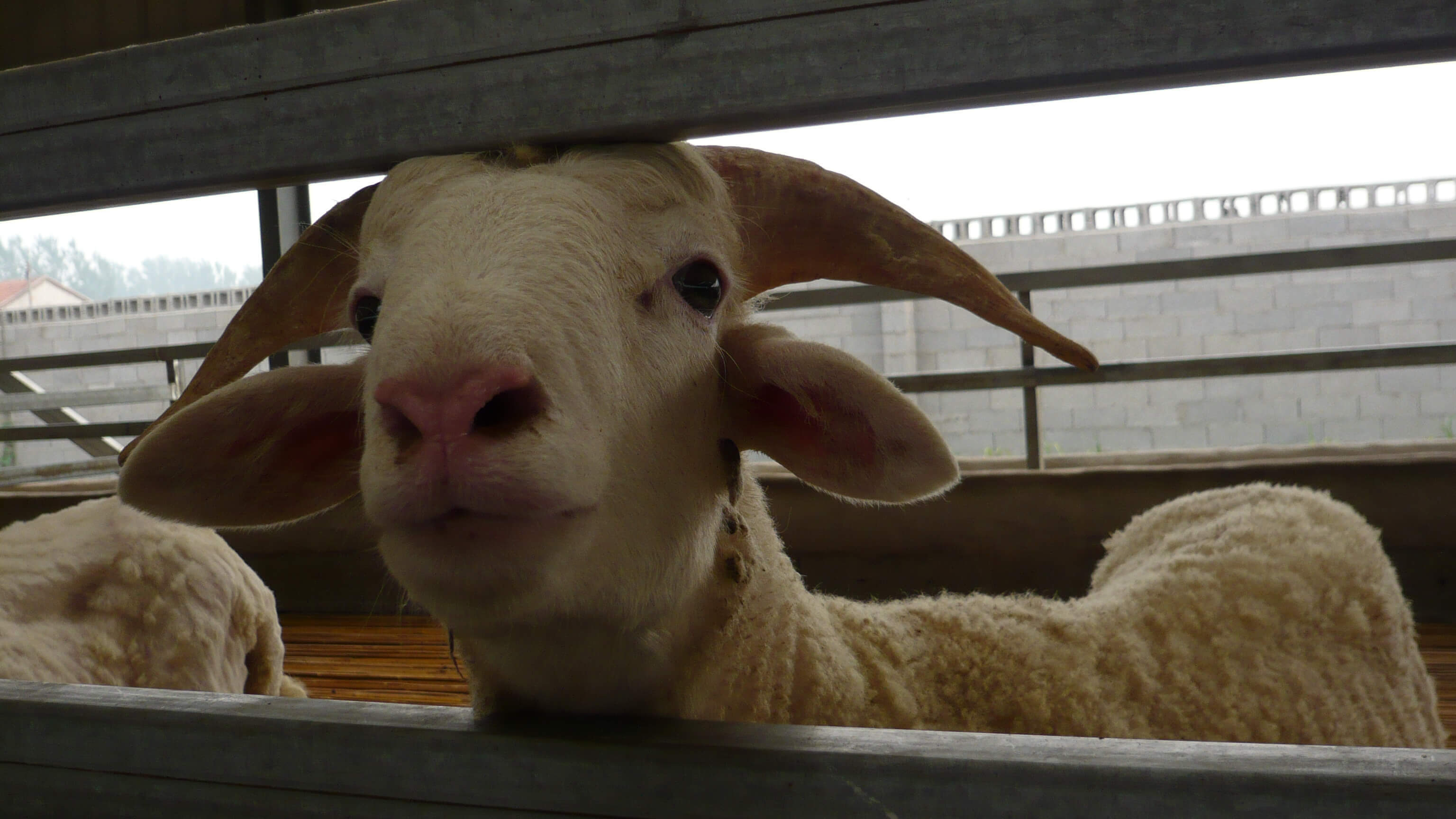‘No-Kill’ Policies Slowly Killing Animals 2011
When “no-kill” animal shelters and rescue groups are filled to capacity, which is almost always, they are left with two options: turn away more animals than they take in or warehouse animals, often in substandard, filthy, and severely crowded conditions, for weeks, months, or even years on end. Most, if not all, of the animals who are turned away from such facilities still face untimely deaths—just not at these facilities.
Instead they are cruelly killed by people who don’t want them, are dumped on roadsides and left to die from starvation or being hit by a car, or spend their short lives homeless, unwanted, and producing more litters of animals for whom no homes exist.
The lucky ones are taken to well-run open-admission animal shelters, where they either find a well-screened, permanent home or are painlessly euthanized in the arms of professionally trained, compassionate people. Here are some of the “no-kill” animal shelter failures that made headlines in recent years for making animals suffer a fate far worse than a kind death.
Reports Showing How ‘No-Kill’ Policies Harmed Animals in December 2011
Delhi, New York
The owner of Angel’s Gate animal hospice was charged with cruelty to animals, months after investigators searched the facility. The official investigation was prompted by an undercover investigation by PETA, which documented that paralyzed dogs dragged themselves around until they developed bloody skin ulcers while their wheeled carts hung on a fence unused, animals with open wounds and respiratory infections were deprived of veterinary examinations and care, and animals were kept in diapers for several days, causing urine scald.
Reports Showing How ‘No-Kill’ Policies Harmed Animals in November 2011
Harrison County, Indiana
Authorities removed 36 cats, three dogs, and four chickens from Frisky Felines Foundation—an in-home cat “rescue”—and the Department of Child Services told the couple who ran it that their two children had to stay elsewhere. Harrison County Animal Control Officer Bruce LaHue told one news reporter, “The smell of feces, urine, molding clothing and rotting food caused your nostrils to swell shut and made it difficult to breathe. There was feline diarrhea on the floor, and … there was two inches of water in the basement and a mattress where it appeared one of the children slept. The entire scene was absolutely unbelievable.” A veterinarian who examined the animals said that half of the cats had an active upper respiratory infection and that some were infected with feline infectious peritonitis, Bordetella bronchiseptica, Chlamydophila felis, and Mycoplasma felis.
Reports Showing How ‘No-Kill’ Policies Harmed Animals in October 2011
Lambertville, New Jersey
The operator of North Carolina–based Saving Fur Kids was charged with 15 counts of cruelty to animals and faced other charges for posing as an animal rescue agency in order to obtain dogs from animal shelters and then resell them for profit at pet stores and in parking lots.
Deer Park, Illinois
The operator of Muddy Paws Dog Rescue was sentenced to two and a half years in prison for animal abuse and torture after allowing nearly 30 animals to starve to death.
Hebron, New York
Four people were each charged with 54 misdemeanor counts of cruelty to animals after authorities investigated the property of the Peaceable Kingdom Animal Rescue, which obtained animals from animal shelters purportedly to “rescue” them. Authorities said the animals were emaciated and dehydrated and had numerous medical problems that did not appear to have been treated, including mange, eye infections, dental problems, and diarrhea.
Reports Showing How ‘No-Kill’ Policies Harmed Animals in September 2011
Clark County, Ohio
The operator of One More Chance Rescue was ordered never again to operate a nonprofit organization after nearly 400 animals were seized from filthy and cruel conditions. According to the lead investigator in the large-scale rescue of the hoarded animals, “The dogs were kept in very unsanitary conditions…no food, dirty, filthy water, just not a condition that you want to leave your worst enemy in, let alone your pet.” Seventy-eight dogs and 15 cats were found dead at the property.
Reports Showing How ‘No-Kill’ Policies Harmed Animals in August 2011
East Baton Rouge Parish, Louisiana
One month after taking over operations at the parish’s animal shelter, Companion Animal Alliance was under investigation in response to allegations of extreme crowding and inhumane conditions. Authorities did find the animal shelter severely crowded and said that animals lacked sufficient food and water and wallowed in their own feces and that some dogs and cats were forced to live inside a men’s bathroom. The animal shelter undertook emergency euthanasia efforts to reduce the “skyrocketing” population.
Surry County, North Carolina
After several failed inspections, the seizure of 23 dogs, and 23 charges of cruelty to animals, the nonprofit Animal Welfare of Surry County received a cease-and-desist order from the state’s Department of Agriculture. The purported rescue obtained dogs from animal shelters and then hoarded them.
Reports Showing How ‘No-Kill’ Policies Harmed Animals in June 2011
Gordon, Alabama
The owner of Dirty Sally’s Pet Pals, a so-called animal “rescue,” was ordered to stop “rescuing” dogs and sentenced to two years of probation after authorities seized 197 dogs and 31 cats who were kept in deplorable conditions there. Prosecutor Patrick Amason stated, “I admire the judge for giving them a condition where they can’t get involved in this kind of business again, because they will essentially try and do this again, and these animals don’t deserve this. They don’t deserve to live in these conditions, don’t deserve not to have enough to eat.”
Reports Showing How ‘No-Kill’ Policies Harmed Animals in July 2011
Johnstown, New York
More than 300 animals were removed from Kelly’s Haven for Friends Animal Rescue after officials found them living in deplorable conditions “in a mixture of garbage, feces, urine and dirt.” In the basement, authorities found that “cages of dogs line the concrete block walls, the tops covered with empty dog crates, supplies and a plastic pool. The chain-link sides of the cages are laced with cobwebs, cardboard is falling from the ceiling and cats perch on the piles.”
Reports Showing How ‘No-Kill’ Policies Harmed Animals in June 2011
High Springs, Florida
Police seized 697 cats from Haven Acres Cat Sanctuary. In March 2012, the couple operating the “sanctuary” pleaded no contest to 47 counts of cruelty to animals and was sentenced to 15 years of probation, along with fines and a prohibition on owning or rescuing any cats.
Reports Showing How ‘No-Kill’ Policies Harmed Animals in May 2011
Ludowici, Georgia
The owner of Loonie Farms Animal Rescue was arrested after dozens of dead animals, some still locked in crates, were found on the rescue’s property.
Killeen, Texas
The operator of Killeen Animal Search and Rescue was arrested and charged with cruelty to animals after authorities found a severely ill kitten and two dogs badly injured from rubber bands tied around their testicles in a crude attempt at home-neutering. Authorities seized 12 cats and 10 dogs from the home.
Reports Showing How ‘No-Kill’ Policies Harmed Animals in March 2011
Apache, Arizona
More than 200 animals were removed and the owner of Colorado Animal Refuge was charged with cruelty to animals after authorities found dogs in dilapidated outdoor pens filled with feces, several suffering from open wounds, mange, malnourishment, and matted coats. The hoarder had relocated from Colorado after she was issued a cease-and-desist order demanding that she provide the animals on her property with proper care and sanitary living conditions.
Bonne Terre, Missouri
Nearly 200 animals were removed from the St. Francois Society animal rescue and the facility’s license was revoked after animals were found in crowded, illegal conditions. According to a news report, “Many [animals] suffered from hair loss and coughing. Dozens of cats were found inside trash-strewn rooms filled with cobwebs. Some of the animals appeared to have upper respiratory infections and possibly internal and external parasites.”
Horry County, South Carolina
Authorities seized more than 200 cats from Sacred Vision Animal Sanctuary after an undercover investigation by PETA revealed that sick cats were kept stacked in cages without veterinary care in a warehouse.
Reports Showing How ‘No-Kill’ Policies Harmed Animals in February 2011
Cook County, Illinois
Chicago authorities shut down Dazzle’s Painted Pastures Rescue & Sanctuary and charged its owner with neglect and cruelty to animals. Many of the more than 100 animals found were sick or dead.
2023 | 2022 | 2021 | 2020 | 2019 | 2018 | 2017 | 2016 | 2015 | 2014 | 2013 | 2012 | 2011 | 2010 | 2009 | 2008
